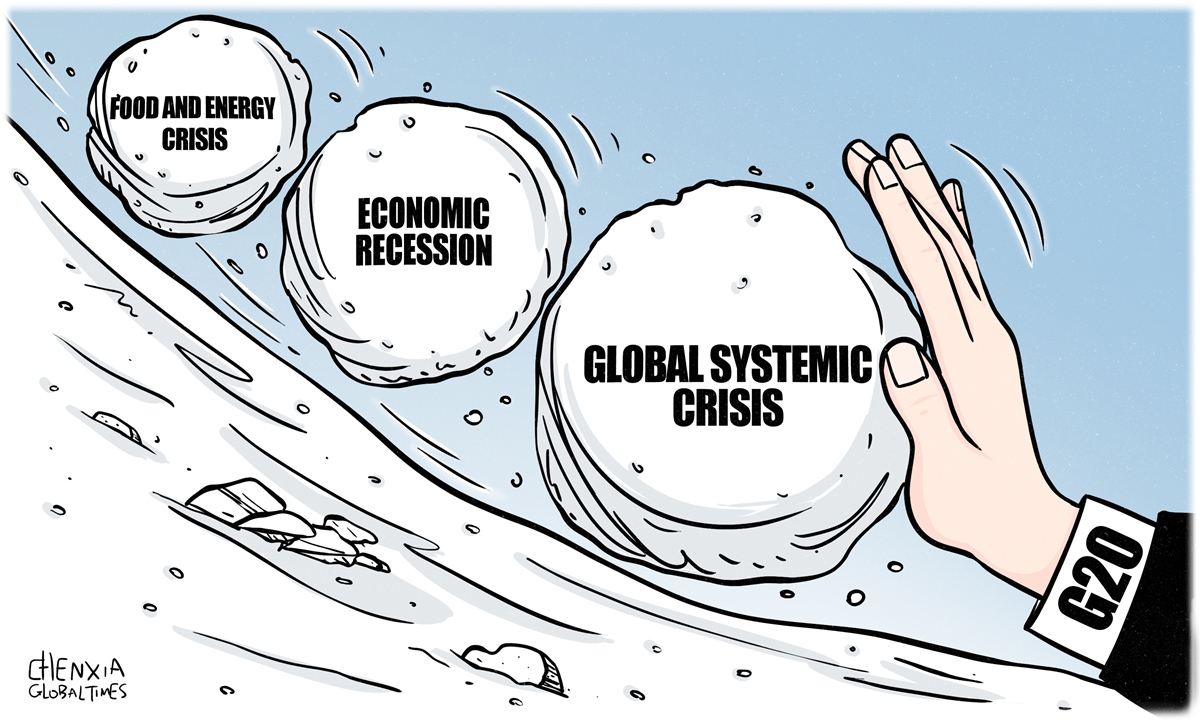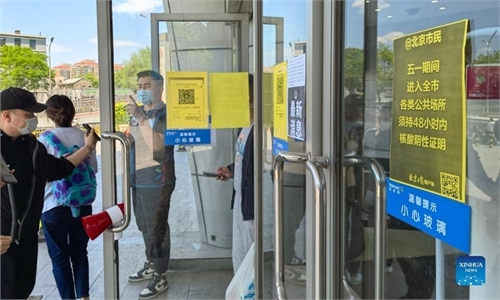
Illustration: Chen Xia/Global Times
Due to the COVID-19 pandemic, geopolitical crisis, and the division in the global production chain, supply chain, value chain, and the drastic shift of monetary policy in the US and other developed economies, the world is in the midst of a global systemic crisis.The severity and harm of this worldwide systemic crisis have been rare since World War II. It is a general outbreak of the accumulation and superposition of various global conflicts in the past 80 years, which can be seen from several aspects.
First, the process of globalization is facing major challenges. The globalization process is undergoing deep adjustments, in which regional characteristics in globalization and political factors in economic and trade relationships are increasing. In particular, with rapid development of information technology and the fourth industrial revolution coming, international competitions have extended from geopolitics and security to overall industrial competitions. Major economies' competition around industrial chains has been rising. The pandemic has driven relief funds in Western countries to flow to big companies, helping them adjust industrial chain layout and join international competition and realize geopolitical goals.
Unfortunately, some countries, out of their own selfish interests, are attempting to build a small circle to raise the risk of confrontation. The so-called Indo-Pacific Economic Framework is based on the design of an exclusive economic structure.
Second, the global economy is heading for recession and may trigger a new financial crisis. Recently, the International Monetary Fund (IMF) announced that it had lowered its 2022 economic growth forecast for the US to 2.3 percent. Kristalina Georgieva, managing director of the IMF, clearly pointed out that the US has a "narrowing path" to avoid recession. While downgrading the US economic growth rate, the IMF has made it clear that it will further reduce the global economic growth rate in 2022.
The IMF currently forecasts a global economic growth rate of 3.6 percent. The IMF is reported to "substantially" cut global growth outlook this year. It may be close to the 2.9 percent global economic growth in 2022 recently announced by the World Bank. As we all know, if the global economic growth forecast is lower than 3 percent, it usually means that the global economy is on the brink of recession.
Third, the energy crisis and food crisis. In February, before the outbreak of the Russia-Ukraine conflict, the world had already seen rising energy prices and food prices. The Russia-Ukraine conflict and the West's sanctions against Russia, as well as Russia's counter-sanctions, have further exacerbated this crisis. According to the statistics of the United Nations, in 2020, 928 million people in the world were suffering from severe food shortages, which is expected to worsen in 2022.
In terms of the energy crisis, although the US and some Western countries have taken practical measures, including the release of 1 million barrels of crude oil reserves in the US every day, and the periodic reduction of gasoline taxes and other measures, but currently we see oil prices still hovering at a high of $110 a barrel. In this case, the US and Western countries will also increase sanctions on Russia's energy, including restricting the price of Russian energy in the market.
It can be clearly seen that the world is currently experiencing serious negative impacts during the process of globalization, and industrial, supply, and value chains are affected by the division of values. The global economy is on the verge of recession and may trigger a global financial crisis. The geopolitical crisis has further exacerbated the global food crisis and energy crisis.
In the face of the most serious systemic crisis since the end of World War II, all countries in the world need to realize the urgency, severity and importance of the task of maintaining peace and development. With the spirit of peaceful coexistence, mutual benefit and win-win results, major economies need to carry out timely policy communication and coordination. The G7 mechanism has been proven by history to be unable to reflect the spirit of the times, and unable to unite the global response to crises. The only effective channel is the G20 mechanism.
The article was compiled based on a speech delivered by Zhu Guangyao, former Chinese Vice Minister of Finance, at the fifth World Finance Forum. bizopinion@globaltimes.com.cn



